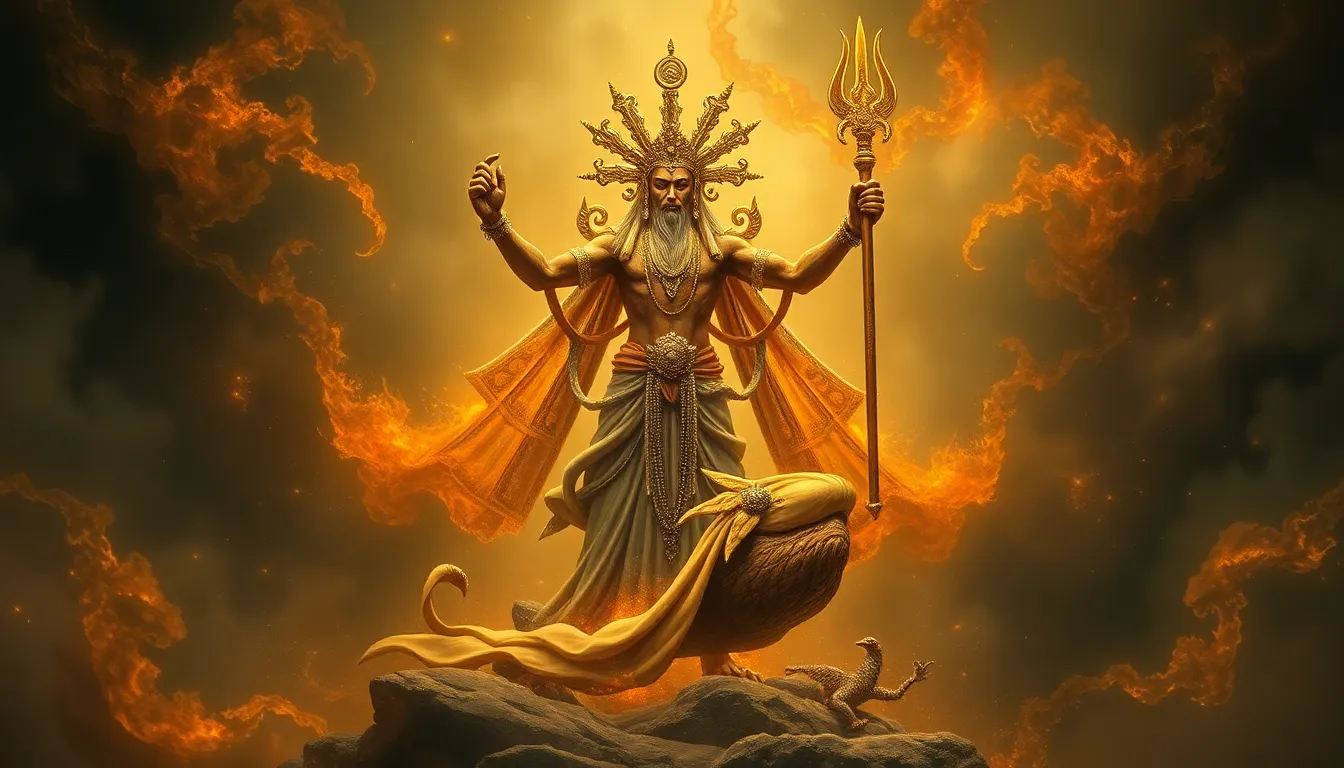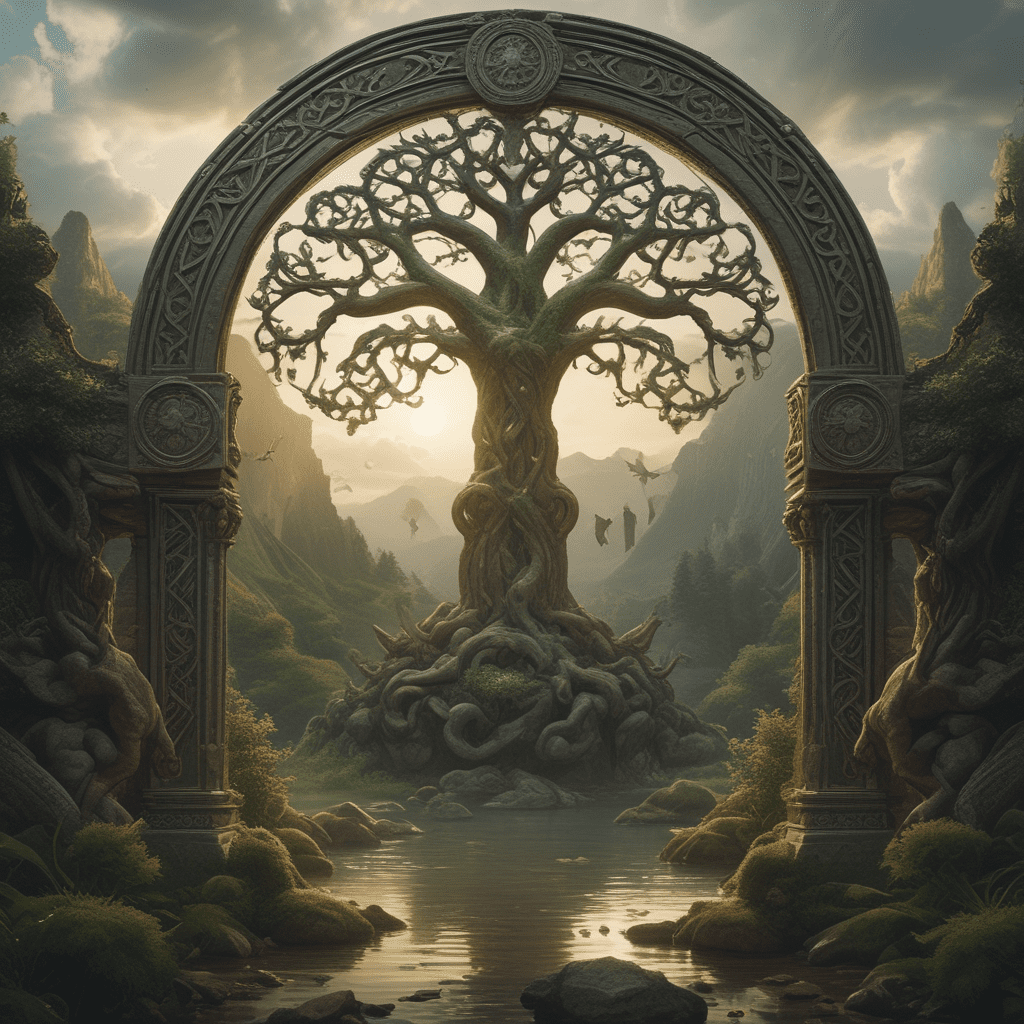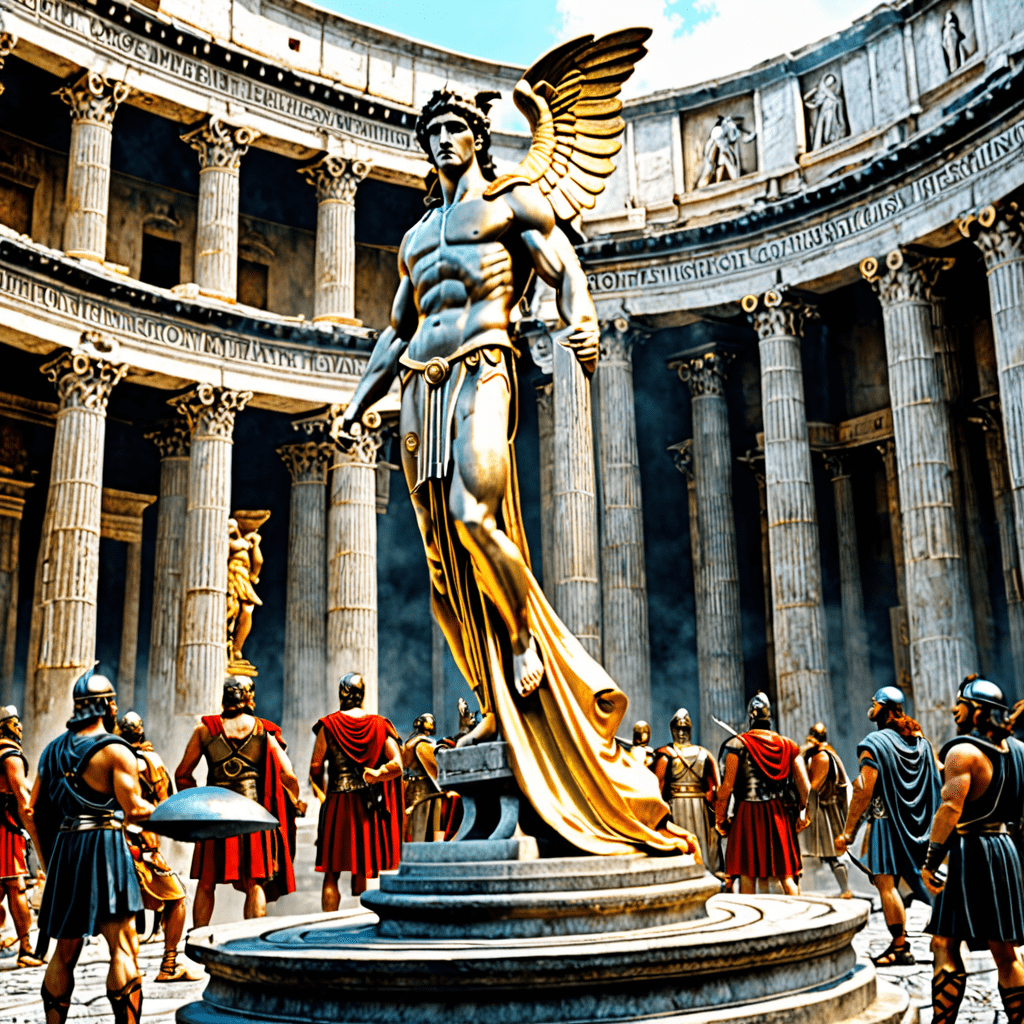The Most Unique Myths of Ancient Deities and Their Lessons
Introduction to Ancient Deities and Their Myths
Ancient mythologies are rich tapestries woven with tales of gods, goddesses, and supernatural beings that have shaped human understanding of the world. These narratives served not only as entertainment but also as profound reflections of the cultures that birthed them. The deities of these myths often personified natural forces, human emotions, and societal ideals, acting as both creators and destroyers, protectors and punishes. Through their stories, ancient civilizations conveyed moral lessons, cultural values, and existential questions, making mythology a crucial part of human history.
The Creation Myths: Deities and the Birth of the Universe
Creation myths serve as foundational stories for many cultures, explaining the origins of the universe and humanity’s place within it. From the chaos of primordial waters to the emergence of land and life, these tales vary significantly across civilizations:
- In Mesopotamia: The Enuma Elish tells of Marduk, who defeats the chaos monster Tiamat and creates the world from her body.
- In Hinduism: The Rigveda describes the cosmic sacrifice of Purusha, whose body creates the elements and all living beings.
- In Christianity: The Book of Genesis narrates the creation of the world in six days by a singular, omnipotent deity.
These myths reveal key lessons about existence, such as the interconnectedness of all life, the importance of harmony, and the responsibility that comes with creation.
The Trickster Gods: Chaos and Creativity
Trickster gods are fascinating figures in mythology, often embodying chaos, cunning, and creativity. Characters like Loki from Norse mythology and Anansi from African folklore illustrate the duality of chaos and order in human experiences.
- Loki: A shape-shifter and instigator, Loki’s actions lead to both destruction and unexpected solutions, teaching that chaos can spur creativity.
- Anansi: A spider god who uses wit to outsmart others, Anansi’s tales emphasize the value of intelligence and resourcefulness.
The lessons from these trickster myths often revolve around the idea that chaos is a necessary part of life, fostering growth, change, and innovation.
Gods of Love and War: The Duality of Desire and Conflict
Deities like Aphrodite and Ares (or Mars) encapsulate the duality of love and war, illustrating how these forces are intertwined in human relationships. Aphrodite, the goddess of love, represents beauty, desire, and passion, while Ares embodies aggression, conflict, and the harsh realities of war.
Through their interactions, myths teach that:
- Love can lead to conflict, as seen in the Trojan War, where passion and jealousy resulted in devastation.
- Conflict can sometimes arise from love, showcasing the complexities of human emotions.
This interplay between love and war highlights the multifaceted nature of human relationships, where desire can lead to both creation and destruction.
Nature Deities and the Lessons of the Earth
Nature deities, such as Gaia in Greek mythology and Pachamama in Incan beliefs, embody the earth and its natural cycles. These figures remind us of our connection to the environment and the importance of stewardship.
- Gaia: As the personification of the Earth, Gaia teaches about the nurturing aspects of nature and the need for balance.
- Pachamama: Revered as a fertility goddess, Pachamama emphasizes the sacredness of the earth and the necessity of respecting its resources.
The lessons from these deities encourage a deeper appreciation for nature and a commitment to environmental conservation.
Underworld Deities and the Concept of Afterlife
Underworld deities like Hades and Osiris represent the human fascination with death and the afterlife. These figures offer insights into cultural beliefs about mortality and moral accountability.
- Hades: The Greek god of the underworld governs the realm of the dead, illustrating the inevitability of death and the importance of honoring the deceased.
- Osiris: In Egyptian mythology, Osiris symbolizes resurrection and the promise of an afterlife, emphasizing the moral implications of one’s actions in life.
These myths reflect diverse cultural perspectives on death, encouraging individuals to consider their legacies and ethical conduct.
The Role of Femininity in Ancient Myths: Goddesses of Power and Wisdom
Goddesses like Athena and Isis exemplify power, wisdom, and the feminine divine, showcasing the significant roles women played in ancient societies.
- Athena: The Greek goddess of wisdom and warfare, Athena represents strategic thought and the value of intellect in achieving success.
- Isis: A powerful Egyptian goddess, Isis embodies motherhood, magic, and healing, emphasizing the importance of nurturing and community.
The lessons imparted by these goddesses promote empowerment, wisdom, and the recognition of the feminine as a source of strength and guidance.
Cultural Variations: Myths of Deities Across Different Civilizations
Similar deities often emerge across different cultures, reflecting shared human experiences. For instance, many civilizations worshipped sun gods, each with unique attributes:
- Ra: The Egyptian sun god, symbolizing light and creation.
- Helios: The Greek god of the sun, representing the journey across the sky.
- Inti: The Incan sun god, associated with agriculture and fertility.
This comparative analysis reveals how unique cultural contexts shape mythological narratives, while also highlighting universal themes such as the importance of light and life.
Modern Interpretations and Adaptations of Ancient Myths
Ancient myths continue to influence contemporary literature, film, and art. Modern adaptations often reinterpret these stories, making them relevant to today’s audiences.
- Films like “Clash of the Titans” and “Wonder Woman” draw on ancient myths to explore themes of heroism and morality.
- Literary works, such as Rick Riordan’s “Percy Jackson” series, introduce mythological figures to younger generations, emphasizing their timeless lessons.
The enduring relevance of these stories underscores their ability to resonate with contemporary issues, offering insights into human nature and societal values.
Conclusion: The Enduring Legacy of Myths and Their Universal Lessons
Ancient myths, through their diverse deities and narratives, provide profound lessons about existence, morality, and the human experience. From creation to chaos, love to conflict, these stories reflect fundamental truths about life and human nature. The enduring legacy of these myths lies in their ability to connect us to our past, offering wisdom and guidance as we navigate the complexities of modern life. Understanding these ancient stories fosters a greater appreciation of cultural identity and the shared human experience, reminding us that the lessons of the past are timeless.




